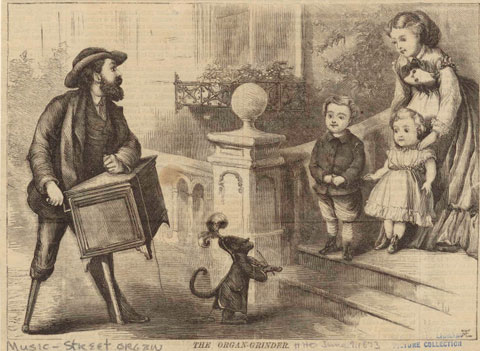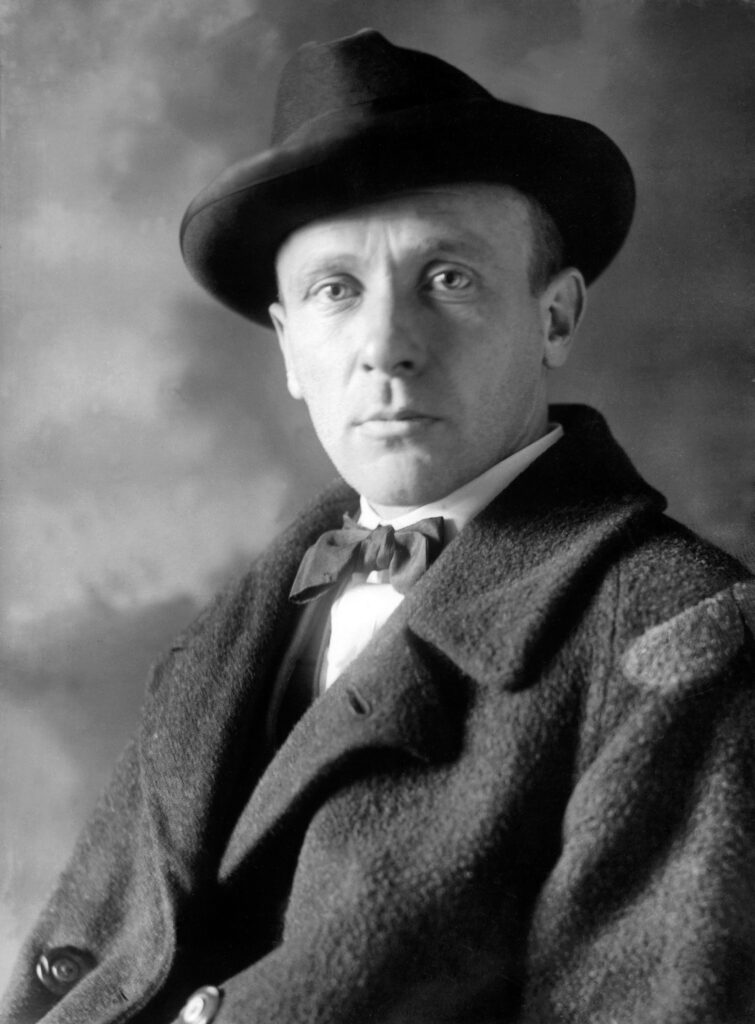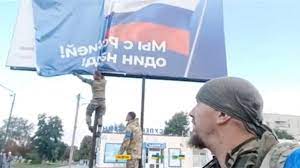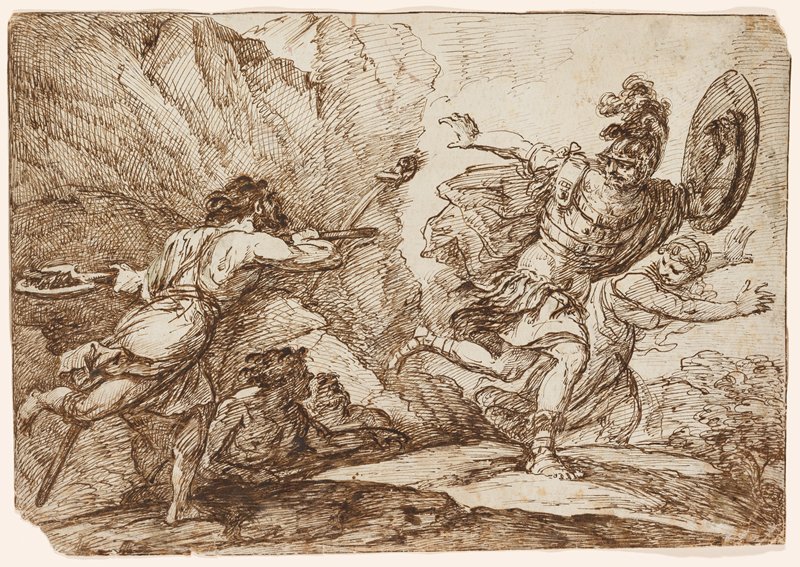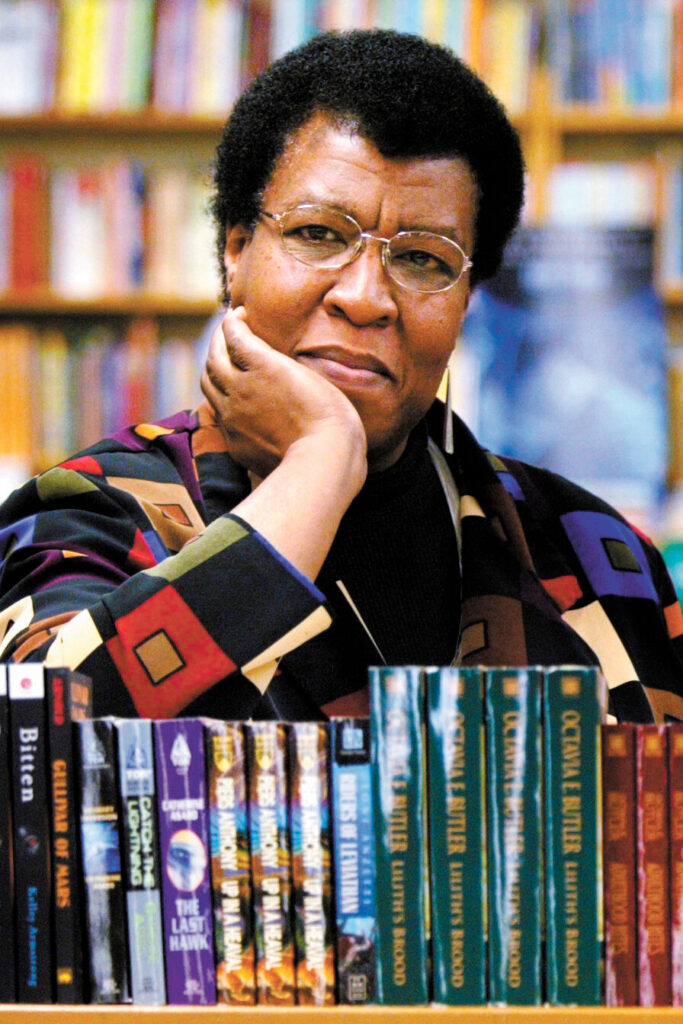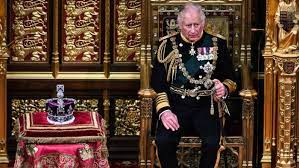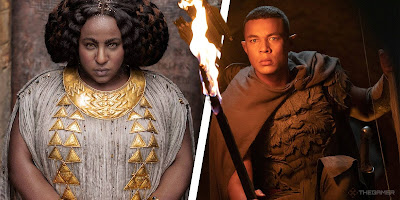Friday
I’m starting a new Friday feature today, which is related to the weekly poetry column I inherited from my mother in the Sewanee Mountain Messenger. “Bard to Verse” comes out every Friday, and henceforward I will devote each Friday’s blog post to discussing the poem I have chosen. Since sometimes I must settle for an except (since the Messenger has limited space), this has the added benefit of allowing Messenger readers to check out the poem in its entirety. If you’d like to see the publication, you can go to here. The weekly poem appears on the last page.
Today is the birthday of Alfred Noyes (b. 1880), whose “Highwayman” is one of the great poems of my childhood. In fact, for me it was the poetic equivalent of Lord of the Rings, capturing the imagination of a dreamy and romantic adolescent and taking him (as Emily Dickinson puts it) “lands away.”
I didn’t know of Noyes’s “The Barrel Organ” until I encountered it in my 11th grade British Literature class. That course was arguably the most important one I ever took (as I told teacher Sparky Edgin multiple times before he passed away) because it took my mind off of the unhappiness of attending a military high school. From that moment on, British Literature became my great passion.
I shake my head in wonder at how much Edgin had us read in that class. Even now, 55 years later, I can remember almost every work we read. (See the end of this post for a complete list.) Very wisely, Edgin started off with the 20th century so we read short stories by Somerset Maugham and Saki (I can remember the plots but not the titles), Dylan Thomas’s “Poem in October,” James Stephens’s “The Shell,” and another story about a bicycle accident that has two endings (which seemed very cool) but whose author and title I also can’t recall. And then there was Noyes’s “Barrel Organ.”
The theme of the poem is that the mechanical music issuing from a barrel-organ has the effect (at least at the moment when “the sun sinks low”) of triggering deep longing in everyone who hears it.
It’s as though people are not actually hearing popular airs from La Traviata and Il Trovatore, performed on a herky-jerky instrument,but their own inarticulate longings. And perhaps that’s what all music does. As Noyes puts it,
And there La Traviata sighs
Another sadder song;
And there Il Trovatore cries
A tale of deeper wrong;
And bolder knights to battle go
With sword and shield and lance
Than ever here on earth below…
The situation reminds me of my favorite chapter in Kenneth Grahame’s Wind in the Willows, “The Piper at the Gates of Dawn.” The time of day is different—dawn rather than twilight—but the theme of longing-that-cannot-be-captured is the same. First Rat hears the distant music (he’s the poet after all) and then Mole. Grahame describes Rat’s response as follows:
Rat, who was in the stern of the boat, while Mole sculled, sat up suddenly and listened with a passionate intentness. Mole, who with gentle strokes was just keeping the boat moving while he scanned the banks with care, looked at him with curiosity.
“It’s gone!” sighed the Rat, sinking back in his seat again. “So beautiful and strange and new! Since it was to end so soon, I almost wish I had never heard it. For it has roused a longing in me that is pain, and nothing seems worthwhile but just to hear that sound once more and go on listening to it forever. No! There it is again!” he cried, alert once more. Entranced, he was silent for a long space, spellbound.
In Grahame’s story, Rat and Mole come face to face with the source of the music—the Great God Pan—and this direct encounter with the divine is ecstatic. But it cannot last, and when it ends they are—a bit like all the lonely people in Noyes’s poem—lost and bereft. To save them, therefore, Pan bestows upon them “the gift of forgetfulness”:
As they stared blankly, in dumb misery deepening as they slowly realized all they had seen and all they had lost, a capricious little breeze, dancing up from the surface of the water, tossed the aspens, shook the dewy roses, and blew lightly and caressingly in their faces; and with its soft touch came instant oblivion. For this is the last best gift that the kindly demi-god is careful to bestow on those to whom he has revealed himself in their helping: the gift of forgetfulness. Lest the awful remembrance should remain and grow, and overshadow mirth and pleasure, and the great haunting memory should spoil all the afterlives of little animals helped out of difficulties, in order that they should be happy and light-hearted as before.
Noyes too speaks of forgetting, and while he doesn’t describe it as a necessary forgetting, there’s a sense that “business as usual” could not go on if we stayed entranced by the distant music:
Yes; as the music changes,
Like a prismatic glass,
It takes the light and ranges
Through all the moods that pass;
Dissects the common carnival
Of passions and regrets,
And gives the world a glimpse of all
The colors it forgets.
In the poem we see all the characters struggling to get this glimpse. It doesn’t matter whether one is a “modish” woman or an “old and haggard demi-rep” (probably an over-the-hill prostitute), a businessman or a thief, a butcher or a clerk, a laborer or an Oxford oarsman. Each, for a moment, is caught up in distant dreams.
And while the barrel-organ’s music can’t restore what has been lost, when it “whirls” from sadness into a dance, it provides them with a consolation. They realize they can “come down to Kew in lilac time.” Unlike the “land where the dead dreams go,” it’s “oh so near to London.”
I remember how much I loved this poem as a teenager. At that age, our longings seem particularly intense—at least that’s how I remember them—so that poems which capture our condition feel like celestial gifts. I think of other mysterious poems from the period that I loved, like Walter de la Mare’s “The Listeners” (“‘Is there anybody there?” said the traveler/Knocking on the moonlit door”), A. E. Housman’s “Land of Lost Content” (“ Into my heart an air that kills/ From yon far country blows”), and E.A. Robinson’s “Luke Havergal” (“The leaves will whisper there of her, and some,/ Like flying words, will strike you as they fall”).
I would have found disappointing any attempts to pin down the mystery. At that age, my mind ranged freely.
As you read “The Barrel-Organ,” perhaps you will find that it touches upon some of your own longings.
The Barrel-Organ
By Alfred Noyes
There’s a barrel-organ caroling across a golden street
In the City as the sun sinks low;
And the music’s not immortal; but the world has made it sweet
And fulfilled it with the sunset glow;
And it pulses through the pleasures of the City and the pain
That surround the singing organ like a large eternal light;
And they’ve given it a glory and a part to play again
In the Symphony that rules the day and night.
And now it’s marching onward through the realms of old romance
And trolling out a fond familiar tune,
And now it’s roaring cannon down to fight the King of France,
And now it’s prattling softly to the moon,
And all around the organ there’s a sea without a shore
Of human joys and wonders and regrets;
To remember and to recompense the music evermore
For what the cold machinery forgets. . . .
Yes; as the music changes,
Like a prismatic glass,
It takes the light and ranges
Through all the moods that pass;
Dissects the common carnival
Of passions and regrets,
And gives the world a glimpse of all
The colors it forgets.
And there La Traviata sighs
Another sadder song;
And there Il Trovatore cries
A tale of deeper wrong;
And bolder knights to battle go
With sword and shield and lance,
Than ever here on earth below
Have whirled into—a dance!—
Go down to Kew in lilac-time, in lilac-time, in lilac-time;
Go down to Kew in lilac-time (it isn’t far from London!)
And you shall wander hand in hand with love in summer’s wonderland;
Go down to Kew in lilac-time (it isn’t far from London!)
The cherry-trees are seas of bloom and soft perfume and sweet perfume,
The cherry-trees are seas of bloom (and oh, so near to London!)
And there they say, when dawn is high and all the world’s a blaze of sky
The cuckoo, though he’s very shy, will sing a song for London.
The Dorian nightingale is rare and yet they say you’ll hear him there
At Kew, at Kew in lilac-time (and oh, so near to London!)
The linnet and the throstle, too, and after dark the long halloo
And golden-eyed tu-whit, tu-whoo, of owls that ogle London.
For Noah hardly knew a bird of any kind that isn’t heard
At Kew, at Kew in lilac-time (and oh, so near to London!)
And when the rose begins to pout and all the chestnut spires are out
You’ll hear the rest without a doubt, all chorusing for London:—
Come down to Kew in lilac-time, in lilac-time, in lilac-time;
Come down to Kew in lilac-time (it isn’t far from London!)
And you shall wander hand in hand with love in summer’s wonderland;
Come down to Kew in lilac-time (it isn’t far from London!)
And then the troubadour begins to thrill the golden street,
In the City as the sun sinks low;
And in all the gaudy buses there are scores of weary feet
Making time, sweet time, with a dull mechanic beat,
And a thousand hearts are plunging to a love they’ll never meet,
Through the meadows of the sunset, through the poppies and the wheat,
In the land where the dead dreams go.
Verdi, Verdi, when you wrote Il Trovatore did you dream
Of the city when the sun sinks low,
Of the organ and the monkey and the many-colored stream
On the Picadilly pavement, of the myriad eyes that seem
To be litten for a moment with a wild Italian gleam
As A che la morte parodies the world’s eternal theme
And pulses with the sunset-glow.
There’s a thief, perhaps, that listens with a face of frozen stone
In the City as the sun sinks low;
There’s a portly man of business with a balance of his own,
There’s a clerk and there’s a butcher of a soft reposeful tone.
And they’re all of them returning to the heavens they have known:
They are crammed and jammed in busses and—they’re each of them alone
In the land where the dead dreams go.
There’s a very modish woman and her smile is very bland
In the City as the sun sinks low;
And her hansom jingles onward, but her little jeweled hand
Is clenched a little tighter and she cannot understand
What she wants or why she wanders to that undiscovered land,
For the parties there are not at all the sort of thing she planned,
In the land where the dead dreams go.
There’s a rowing man that listens, and his heart is crying out
In the City as the sun sinks low;
For the barge, the eight, the Isis, and the coach’s whoop and shout,
For the minute-gun, the counting and the long disheveled rout,
For the howl along the towpath and a fate that’s still in doubt,
For a roughened oar to handle and a race to think about
In the land where the dead dreams go.
There’s a laborer that listens to the voices of the dead
In the City as the sun sinks low;
And his hand begins to tremble and his face to smolder red,
As he sees a loafer watching him and—there he turns his head
And stares into the sunset where his April love is fled,
For he hears her softly singing, and his lonely soul is led
Through the land where the dead dreams go.
There’s an old and haggard demi-rep, it’s ringing in her ears,
In the City as the sun sinks low;
With the wild and empty sorrow of the love that blights and sears,
Oh, and if she hurries onward, then be sure, be sure she hears,
Hears and bears the bitter burden of the unforgotten years,
And her laugh’s a little harsher and her eyes are brimmed with tears
For the land where the dead dreams go.
There’s a barrel-organ caroling across a golden street
In the City as the sun sinks low;
Though the music’s only Verdi there’s a world to make it sweet
Just as yonder yellow sunset where the earth and heaven meet
Mellows all the sooty City! Hark, a hundred thousand feet
Are marching on to glory through the poppies and the wheat
In the land where the dead dreams go.
So it’s Jeremiah, Jeremiah,
What have you to say
When you meet the garland girls
Tripping on their way?
All around my gala hat
I wear a wreath of roses
(A long and lonely year it is
I’ve waited for the May!)
If anyone should ask you,
The reason why I wear it is—
My own love, my true love,
Is coming home to-day.
And it’s buy a bunch of violets for the lady
(It’s lilac-time in London; It’s lilac-time in London!)
Buy a bunch of violets for the lady
While the sky burns blue above:
On the other side the street you’ll find it shady
(It’s lilac-time in London! It’s lilac-time in London!)
But buy a bunch of violets for the lady,
And tell her she’s your own true love.
There’s a barrel-organ caroling across a golden street
In the City as the sun sinks glittering and slow;
And the music’s not immortal; but the world has made it sweet
And enriched it with the harmonies that make a song complete
In the deeper heavens of music where the night and morning meet,
As it dies into the sunset-glow;
And it pulses through the pleasures of the City and the pain
That surround the singing organ like a large eternal light,
And they’ve given it a glory and a part to play again
In the Symphony that rules the day and night.
And there, as the music changes,
The song runs round again.
Once more it turns and ranges
Through all its joy and pain,
Dissects the common carnival
Of passions and regrets;
And the wheeling world remembers all
The wheeling song forgets.
Once more La Traviata sighs
Another sadder song:
Once more II Trovatore cries
A tale of deeper wrong;
Once more the knights to battle go
With sword and shield and lance
Till once, once more, the shattered foe
Has whirled into—a dance!
Come down to Kew in lilac-time, in lilac-time, in lilac time;
Come down to Kew in lilac-time (it isn’t far from London!)
And you shall wander hand and hand with love in summer’s wonderland;
Come down to Kew in lilac-time (it isn’t far from London!)
The other works in my high school course: After reading works post-World War II, we went to the beginning, reading Beowulf, Chaucer’s Prologue and “The Miller’s Tale,” I think a Sidney poem, Hamlet, perhaps a Donne poem, definitely a Richard Lovelace poem (“Stone Walls Do Not a Prison Make”), I think an excerpt from Pope’s Essay on Man, an excerpt from Gulliver’s Travels, definitely Oliver Goldsmith’s She Stoops to Conquer (and also The Vicar of Wakefield as a separate text), Thomas Gray’s “Elegy on a Country Churchyard,” Wordsworth’s Intimations of Immortality, Coleridge’s “Kubla Khan,” Shelley’s “Ode to the West Wind,” Keats’s “Ode to a Nightingale,” Tennyson’s “Flower in a Crannied Wall,” Browning’s “My Last Duchess,” and, as a grand finale, Shaw’s Pygmalion. My memory may have failed me on some of these and I’m sure there are ones I’ve left out, but the fact that many of these stick with me shows the impact they had.
One could note that there were no women or writers of color on the list. In 1967, we did not foresee how feminism, African-American studies, and post-colonialist discourse would change the literary landscape.

